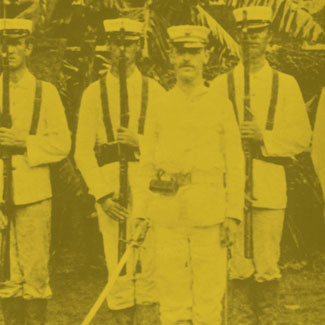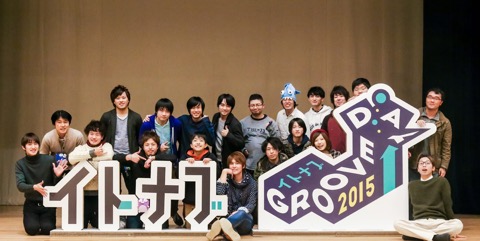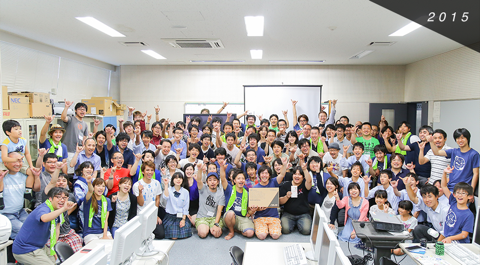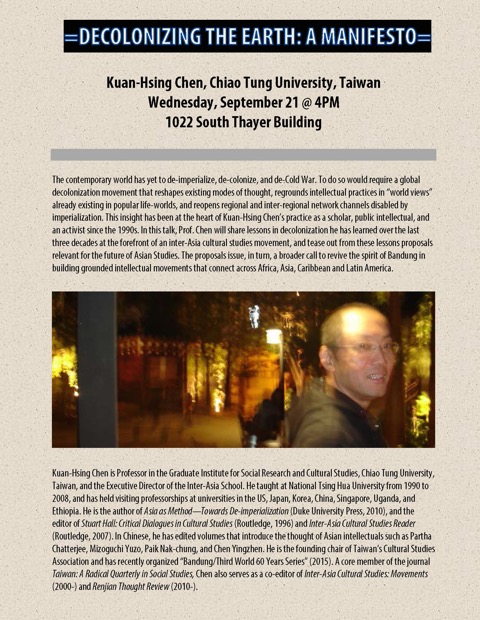Voices from Tohoku
12/07/16 10:13
Given that we’re reading and watching about 3/11 this week, I thought this might be a good time to share a really fantastic resource that professors and students at Sophia University, in Tokyo, have been building. They have gathered hundreds of hours of interviews with people in the Tohoku region after 3/11 and organized them on a fantastic website.
A description in English is here.
The website itself, which is mostly in Japanese, is here. You can click around to get to lots of videos of people talking about their lives before and since 3/11.
A description in English is here.
The website itself, which is mostly in Japanese, is here. You can click around to get to lots of videos of people talking about their lives before and since 3/11.
EC - 12/7 Talk on TPP
12/07/16 07:26
Japan-US Leadership in Asia-Pacific:
Making a New Trade Architecture in the Region
Yorizumi Watanabe
Professor, Keio University
Wednesday, December 7, 2016
4:30-6:00 pm
Room 1636 School of Social Work Building
This lecture will be followed by a mini-reception. Both are free and open to the public.
Join Keio University Professor, Dr. Yorizumi Watanabe, for a special talk on Japan-U.S. leadership and its influence on trade relations in the Asia-Pacific region. Professor Watanabe will discuss the current global challenges and regional uncertainties facing Japan while exploring how the U.S. and Japan can jointly address these important issues. He will also outline the strategic importance of Trans-Pacific Partnership (TPP) and its role as a “security pact” for economic relations throughout the region. The significance of increasing coherence in trade between the U.S. and Japan will also be addressed.
Professor Watanabe’s distinguished career has featured significant engagement in high level trade negotiations and several appointments in Japan’s Foreign Service, specializing in international trade policy issues. Since 2005, he has been working as a professor of International Political Economy and Trade Policy at Keio University in Tokyo.
Cosponsored by the Consulate General of Japan in Detroit.
Making a New Trade Architecture in the Region
Yorizumi Watanabe
Professor, Keio University
Wednesday, December 7, 2016
4:30-6:00 pm
Room 1636 School of Social Work Building
This lecture will be followed by a mini-reception. Both are free and open to the public.
Join Keio University Professor, Dr. Yorizumi Watanabe, for a special talk on Japan-U.S. leadership and its influence on trade relations in the Asia-Pacific region. Professor Watanabe will discuss the current global challenges and regional uncertainties facing Japan while exploring how the U.S. and Japan can jointly address these important issues. He will also outline the strategic importance of Trans-Pacific Partnership (TPP) and its role as a “security pact” for economic relations throughout the region. The significance of increasing coherence in trade between the U.S. and Japan will also be addressed.
Professor Watanabe’s distinguished career has featured significant engagement in high level trade negotiations and several appointments in Japan’s Foreign Service, specializing in international trade policy issues. Since 2005, he has been working as a professor of International Political Economy and Trade Policy at Keio University in Tokyo.
Cosponsored by the Consulate General of Japan in Detroit.
Minamata disease film
12/07/16 07:26
More enka
12/01/16 13:55
A Bit More on For-Profit
11/05/16 11:19
To follow up on some, ahem, rants that occurred during our discussion of neoliberalism.
The Downfall of For-Profit Colleges
Why many low-income people end up at expensive for-profit colleges
Justice Department says it will end use of private prisons
End Prisons-for-Profit
A PBS news story from 2008 about “Prisons for Profit” click on the right to see the full video.
The Downfall of For-Profit Colleges
Why many low-income people end up at expensive for-profit colleges
Justice Department says it will end use of private prisons
End Prisons-for-Profit
A PBS news story from 2008 about “Prisons for Profit” click on the right to see the full video.
Hikikomori
11/03/16 21:51
Nick sends this in, with thoughtful caveats:
I found this article a while ago while looking up stuff about hikikomori when I was trying to think about what to do for a final assignment, it came out in September and I thought this was pretty interesting and maybe it could be used in the future if this topic ever comes up in the class. It also discusses an online school used to give these kids an education. I know it's a little close to being moral panic-ish (especially with that last line of the video sounding a little judgmental), but I think the creation of the virtual high school targeting non-traditional students was interesting.
I found this article a while ago while looking up stuff about hikikomori when I was trying to think about what to do for a final assignment, it came out in September and I thought this was pretty interesting and maybe it could be used in the future if this topic ever comes up in the class. It also discusses an online school used to give these kids an education. I know it's a little close to being moral panic-ish (especially with that last line of the video sounding a little judgmental), but I think the creation of the virtual high school targeting non-traditional students was interesting.
EC - Agents of Change 11/3
10/08/16 10:50
Film Screening and Panel Discussion
Thursday, Nov. 3
4:00-6:00 p.m.
5511 Haven Hall
Film Synopsis:
From the well-publicized events at San Francisco State in 1968 to the image of black students with guns emerging from the takeover of the student union at Cornell University in April, 1969, the struggle for a more relevant and meaningful education, including demands for black and ethnic studies programs, became a clarion call across the country in the late 1960's. Through the stories of these young men and women who were at the forefront of these efforts, Agents of Change examines the untold story of the racial conditions on college campuses and in the country that led to these protests. The film’s characters were caught at the crossroads of the civil rights, black power, and anti-Vietnam war movements at a pivotal time in America’s history. Today, over 45 years later, many of the same demands are surfacing in campus protests across the country, revealing how much work remains to be done.
Panel Discussion:
The panel discussion following the film will include students, a faculty moderator, and the Co-Producers and Co-Directors of Agents of Change: Frank R. Dawson and Abby Ginzberg.
This screening is sponsored by: The Department of Afroamerican and African Studies, the Office of the Associate Dean for Undergraduate Education, the Center for Research on Learning and Teaching, the Institute for the Humanities, and the Department of English.
Thursday, Nov. 3
4:00-6:00 p.m.
5511 Haven Hall
Film Synopsis:
From the well-publicized events at San Francisco State in 1968 to the image of black students with guns emerging from the takeover of the student union at Cornell University in April, 1969, the struggle for a more relevant and meaningful education, including demands for black and ethnic studies programs, became a clarion call across the country in the late 1960's. Through the stories of these young men and women who were at the forefront of these efforts, Agents of Change examines the untold story of the racial conditions on college campuses and in the country that led to these protests. The film’s characters were caught at the crossroads of the civil rights, black power, and anti-Vietnam war movements at a pivotal time in America’s history. Today, over 45 years later, many of the same demands are surfacing in campus protests across the country, revealing how much work remains to be done.
Panel Discussion:
The panel discussion following the film will include students, a faculty moderator, and the Co-Producers and Co-Directors of Agents of Change: Frank R. Dawson and Abby Ginzberg.
This screening is sponsored by: The Department of Afroamerican and African Studies, the Office of the Associate Dean for Undergraduate Education, the Center for Research on Learning and Teaching, the Institute for the Humanities, and the Department of English.
EC - Taller Than the Trees
10/06/16 18:40
I’m happy to give extra credit to students who watch this short documentary film and write a reflection by 10/14.
There’s also a short statement by the filmmaker.
There’s also a short statement by the filmmaker.
Call for Applications - Center for Japanese Studies Undergraduate Advisory Board
10/03/16 19:13
Looking to connect with U-M faculty and students who specialize in Japan Studies? Interested in having a say in U-M's biggest Japan-related events and programs? Then apply for a seat on the CJS Undergraduate Advisory Board!
We welcome undergraduate students of all years, majors, and interests. No Japanese language background is required. Come be a part of the country's oldest Japan Studies institution!
Follow this link to apply (application closes Oct 30th).
For more information, please contact Brad Hammond at bradlyh@umich.edu.
EC - Metroimperial Intimacies
09/30/16 14:21
I’m happy to give extra credit to students who attend this event and write a reflection about it.

In Metroimperial Intimacies (Duke University Press, 2015), Victor Román Mendoza combines historical, literary, and archival analysis with queer-of-color critique to show how U.S. imperial incursions into the Philippines enabled the growth of unprecedented social and sexual intimacies between native Philippine and U.S. subjects. The real and imagined intimacies—whether expressed through friendship, love, or eroticism—threatened U.S. gender and sexuality norms. To codify U.S. heteronormative behavior, the colonial government prohibited anything loosely defined as perverse, which along with popular representations of Filipinos, regulated colonial subjects and depicted them as sexually available, diseased, and degenerate.
Mendoza analyzes laws, military records, the writing of Philippine students in the United States, and popular representations of Philippine colonial subjects to show how their lives, bodies, and desires became the very battleground for the consolidation of repressive legal, economic, and political institutions and practices of the U.S. colonial state. By highlighting the importance of racial and gendered violence in maintaining control at home and abroad, Mendoza demonstrates that studies of U.S. sexuality must take into account the reach and impact of U.S. imperialism.
This book panel will feature comments by Mendoza, de la Cruz, and Cotera, with ample time for audience discussion.

| GENDER: NEW WORKS, NEW QUESTIONS |
| Victor Mendoza (English, Women's Studies) |
| Deirdre de la Cruz (Asian Languages and Cultures, History) |
| Maria Cotera (American Culture, Women's Studies) |
EC - Campaign Film
09/23/16 15:18
As I mentioned earlier, the Toyota Visiting Professor at Michigan this year is a wonderful documentary film maker who is focused on Japan. In addition to the opportunity to see his film “Mental” on 9/23, I have arranged for streaming of his earlier film “Election.” The trailer is below and you can find the full film on Canvas / Media Gallery. If you would like extra credit, please watch the film and respond to it as directed on the “Extra Credit” page of this website.
Dancing Samurai
09/20/16 13:32
A Brief Overview of a lot of Japanese History
09/20/16 13:31
Brandon found this and sends it in, saying:
“I stumbled upon this super cool YouTube video summarizing all of Japan's history in 9 minutes. It's pretty funny with its simplistic storytelling and I thought that you would be interested if you haven't seen this already. This seems like an entertaining video I think most of the class could get behind. Based on the tone of the author, he sounds like he is describing Japan's history with sort of a passing interest, though I'm sure his intention was simply to humor viewers. The video did provide me with historical knowledge that I previously didn't have, such as the Mongolian invasions being foiled by Typhoons! Overall, I thought the video was very colorful and easy to get engaged in, I hope anyone else who watches shares the same sentiment!”
Open question: Why do you think this video has 16 million+ views?? I was surprised the number was that high, but maybe I shouldn’t have been surprised?
“I stumbled upon this super cool YouTube video summarizing all of Japan's history in 9 minutes. It's pretty funny with its simplistic storytelling and I thought that you would be interested if you haven't seen this already. This seems like an entertaining video I think most of the class could get behind. Based on the tone of the author, he sounds like he is describing Japan's history with sort of a passing interest, though I'm sure his intention was simply to humor viewers. The video did provide me with historical knowledge that I previously didn't have, such as the Mongolian invasions being foiled by Typhoons! Overall, I thought the video was very colorful and easy to get engaged in, I hope anyone else who watches shares the same sentiment!”
Open question: Why do you think this video has 16 million+ views?? I was surprised the number was that high, but maybe I shouldn’t have been surprised?
When did Japan stop being the Future?
09/15/16 13:32
While looking for the Blade Runner trailer, I found this fascinating article that speaks very much to things we’ve been discussing for the past few weeks.

Full article is here.

Full article is here.
Blade Runner
09/15/16 13:31
As we discussed in class...
For me, the important detail is that 1) the future here is represented as Japanese, or at least Japanesey and 2) a major threat in that future are robots that look like humans. It doesn’t feel like too much of a leap to suggest that the film is representing Japanese-ness as potential threatening precisely because “their” humanity is somehow less confirmed. Think of the pangolin!
For me, the important detail is that 1) the future here is represented as Japanese, or at least Japanesey and 2) a major threat in that future are robots that look like humans. It doesn’t feel like too much of a leap to suggest that the film is representing Japanese-ness as potential threatening precisely because “their” humanity is somehow less confirmed. Think of the pangolin!
More on that "Copying" Study I Mentioned
09/09/16 10:55
Both Siddhartha and Michelle took great initiative to figure out more about that “copying” study I mentioned in class on Thursday.
Siddhartha gave permission to share his results with everyone:
You mentioned in class you heard of this study but hadn't found the source yet. I think it refers to this 1978 Langer paper. A basic summary is here.
It doesn't seem to explicitly compare the effect of the specific word "because,” but rather the effect of giving some sort of explanation (which is where "because" ties in) and the likelihood of the listener to actually process the reason. The lower the magnitude of the request, the more likely people were to accept a bogus (circular logic / redundant) reason for cutting ahead, but as the magnitude of the request increased they were more likely to pay attention and call the confederate out.
(I mentioned that it doesn't focus on "because" specifically because, they don't actually focus on the word; it's either an explanation (realistic or redundant) or not.)
I suppose the tie-in would be that "because" is best at manipulating people into accepting small requests on shaky reasoning. Overall more of a study on information processing.
Here's another study I found while searching that draws from this design.
This one actually focuses on the attribution of the reason, bringing the circumstances vs. personality attribution idea into play. Indicates that folks are less sympathetic towards controllable/personality-based reasons than circumstantial.
Siddhartha gave permission to share his results with everyone:
You mentioned in class you heard of this study but hadn't found the source yet. I think it refers to this 1978 Langer paper. A basic summary is here.
It doesn't seem to explicitly compare the effect of the specific word "because,” but rather the effect of giving some sort of explanation (which is where "because" ties in) and the likelihood of the listener to actually process the reason. The lower the magnitude of the request, the more likely people were to accept a bogus (circular logic / redundant) reason for cutting ahead, but as the magnitude of the request increased they were more likely to pay attention and call the confederate out.
(I mentioned that it doesn't focus on "because" specifically because, they don't actually focus on the word; it's either an explanation (realistic or redundant) or not.)
I suppose the tie-in would be that "because" is best at manipulating people into accepting small requests on shaky reasoning. Overall more of a study on information processing.
Here's another study I found while searching that draws from this design.
This one actually focuses on the attribution of the reason, bringing the circumstances vs. personality attribution idea into play. Indicates that folks are less sympathetic towards controllable/personality-based reasons than circumstantial.
Japanese Democracy - "Campagin" Documentary Film
09/09/16 10:53
I am interested to see Mr. Kazuhiro Soda’s newest film, Mental, because I enjoyed his earlier film, Campaign, so much. It’s a documentary capturing the efforts of a man running for the national Diet. If any student is interested in watching it, let me know and I’ll add it to our films page.
Extra Credit - "Mental" Documentary Screening
09/09/16 10:46
Another fantastic opportunity for extra credit!

7-10pm
FREE Film Screening with Kazuhiro Soda's introduction and post-film Q&A session
Michigan Theater
603 East Liberty Avenue, Ann Arbor
10-11pm
Mini Reception
Slurping Turtle
608 East Liberty Street, Ann Arbor
Kazuhiro Soda is an award-winning Japanese filmmaker based in New York. His films have been screened at such events as Berlin International Film Festival, Venice International Film Festival, Locarno International Film Festival, Busan International Film Festival, Hong Kong International Film Festival, MoMA Documentary Fortnight, Cinema du Reel, and Visions du Reel, among others. He is known for his observational method and style of documentary filmmaking in which he strictly prohibits himself from doing pre-shoot research or meeting in order to minimize preconceptions and to make unexpected discoveries while filming. He is also the author of seven books published in Japan. He received his BA in Religious Studies from the University of Tokyo and BFA in Film Directing from the School of Visual Arts in New York.

7-10pm
FREE Film Screening with Kazuhiro Soda's introduction and post-film Q&A session
Michigan Theater
603 East Liberty Avenue, Ann Arbor
10-11pm
Mini Reception
Slurping Turtle
608 East Liberty Street, Ann Arbor
Kazuhiro Soda is an award-winning Japanese filmmaker based in New York. His films have been screened at such events as Berlin International Film Festival, Venice International Film Festival, Locarno International Film Festival, Busan International Film Festival, Hong Kong International Film Festival, MoMA Documentary Fortnight, Cinema du Reel, and Visions du Reel, among others. He is known for his observational method and style of documentary filmmaking in which he strictly prohibits himself from doing pre-shoot research or meeting in order to minimize preconceptions and to make unexpected discoveries while filming. He is also the author of seven books published in Japan. He received his BA in Religious Studies from the University of Tokyo and BFA in Film Directing from the School of Visual Arts in New York.
Double Drop?
09/09/16 10:26
And then there’s this, another recent example of what we’ve been discussing this week. There’s a lot going on in this video. The lyrics (in American English) are subtitled in Japanese, and then those subtitles are translated back into English, presumably through something like google translate, so the phrases end up sounding very different. They lose a lot of nuance but are rendered kind of hilarious. Or something?
Meanwhile, for our purposes, the video looks like the exteriors were filmed in the Kabukicho neighborhood of Tokyo, which we will learn a lot more about in Akiko Takeyama’s wonderful book later in the semester.
Any thoughts? Can we build analysis linking the song’s insistence that “my word is bond” with its use of Japanese?
Meanwhile, for our purposes, the video looks like the exteriors were filmed in the Kabukicho neighborhood of Tokyo, which we will learn a lot more about in Akiko Takeyama’s wonderful book later in the semester.
Any thoughts? Can we build analysis linking the song’s insistence that “my word is bond” with its use of Japanese?
More Japan Dropping?
09/09/16 10:22
Kuni, your fantastic GSI, sent this in as another example of what we talked about this week. It is a song that I remember from my time in high school! His point is that there is a lot of Japanese, and likely at a time (1997) when Japan was cooler and loomed larger in the Americna popular imagination.
Extra Credit Opportunity 9/9 - Community Group
09/06/16 06:09
This Friday, Sept 9th at 7:00 pm in SSWB 1636, CJS and U-M Kinyokai are excited to host a special lecture by Takayuki Furuyama, Founder/CEO of ITNAV Ishinomaki. Pizza and beverages will be served, so be sure to come hungry! Please also note that this lecture will be given in Japanese without interpretation.


Founded in the aftermath of the 2011 Great East Japan earthquake and tsunami, ITNAV Ishinomaki is a grassroots organization based in Ishinomaki City that promotes K-12 IT education through community workshops, joint programs with local high schools, and hackathons.
Takayuki, an Ishinomaki-native who was based in Tokyo at the time of the disaster, moved back to Ishinomaki after the tsunami and founded ITNAV with the goal of training 1,000 IT engineers there by 2021 (the 10th anniversary of the disaster). For more info, please see this promotional video.
If interested in attending, please send me your RSVP by this Thursday, Sept 8th. (RSVPs are purely for planning purposes, so please feel free to attend even if you cannot RSVP by Thursday.) Please RSVP to bradlyh@umich.edu


Founded in the aftermath of the 2011 Great East Japan earthquake and tsunami, ITNAV Ishinomaki is a grassroots organization based in Ishinomaki City that promotes K-12 IT education through community workshops, joint programs with local high schools, and hackathons.
Takayuki, an Ishinomaki-native who was based in Tokyo at the time of the disaster, moved back to Ishinomaki after the tsunami and founded ITNAV with the goal of training 1,000 IT engineers there by 2021 (the 10th anniversary of the disaster). For more info, please see this promotional video.
If interested in attending, please send me your RSVP by this Thursday, Sept 8th. (RSVPs are purely for planning purposes, so please feel free to attend even if you cannot RSVP by Thursday.) Please RSVP to bradlyh@umich.edu
Policy on e-books
09/04/16 07:48
Do you know what it feels (and sounds) like to talk on the phone with someone who is watching tv or doing something else? That’s the feeling I’m trying to banish from our classroom. Although I know that people’s minds always wander - and that can be a wonderful thing! - I don’t want our preciously few hours together to have to compete with whatever’s happening on facebook, snapchat, or whatever app the cool kids are into these days.
Given my sense of the rewards for making our class free of digital technologies, a student has written me asking if they could buy and read e-books for the course.
I am trying to avoid a situation in which students are more absorbed in their technology than the conversation or their own thoughts (about the class). If you can have an e-book in front of you and not be at all disassociated from the class, you are allowed to use it. However, please know that if I have to ask you to stop messing with whatever technology is near you, I will ask you not to bring it back. Therefore if you think you might have a hard time not using the e-book for anything other than looking up a quote or following along with someone else’s point, I recommend you buy paperback books.
Also, please remind yourself that our phones, especially, are now literally being designed to make you never want to let it go, so you might feel some pangs of discomfort or confusion.

Given my sense of the rewards for making our class free of digital technologies, a student has written me asking if they could buy and read e-books for the course.
I am trying to avoid a situation in which students are more absorbed in their technology than the conversation or their own thoughts (about the class). If you can have an e-book in front of you and not be at all disassociated from the class, you are allowed to use it. However, please know that if I have to ask you to stop messing with whatever technology is near you, I will ask you not to bring it back. Therefore if you think you might have a hard time not using the e-book for anything other than looking up a quote or following along with someone else’s point, I recommend you buy paperback books.
Also, please remind yourself that our phones, especially, are now literally being designed to make you never want to let it go, so you might feel some pangs of discomfort or confusion.

Extra Credit Opportunity - Film Screening
09/03/16 15:06
In our first week of classes, the Center for Japanese Studies is co-sponsoring screenings of a film titled Umimachi diary in Japanese and Our Little Sister in English. (Not the best English title, huh?) It is based on a popular manga.
I will be happy to give extra credit to any student who watches the film and writes a short reflection on it. As describe here, that reflection is due one week after you see the film to Canvas.
More information - including ticket prices! - is here.
I will be happy to give extra credit to any student who watches the film and writes a short reflection on it. As describe here, that reflection is due one week after you see the film to Canvas.
More information - including ticket prices! - is here.
Extra Credit Opportunity 9/16 - Sharing Feedback
09/03/16 14:40
I’ll be happy to give extra credit to students who participate in a small discussion group with representatives from our wonderful Center for Japanese Studies. As they redesign some graphics and how they present materials to members of the University of Michigan community, they would like to get thoughts and feedback from current students.
Therefore, CJS is looking for ten students who would be willing to meet and share their thoughts on Friday, September 16 from 1-2pm. I will be happy to give an extra credit point to any students who are able to participate. Because the group must be no more than 10 students, please RSVP to me if you want to participate.
No preparation is required and for this Extra Credit Opportunity, unlike the others over the semester, you do not need to write a reflection essay to get credit.
Therefore, CJS is looking for ten students who would be willing to meet and share their thoughts on Friday, September 16 from 1-2pm. I will be happy to give an extra credit point to any students who are able to participate. Because the group must be no more than 10 students, please RSVP to me if you want to participate.
No preparation is required and for this Extra Credit Opportunity, unlike the others over the semester, you do not need to write a reflection essay to get credit.
This is Your Brain on Screens
09/03/16 14:25

Despite my own use of technology in and out of the classroom, I have a strong restriction against students using laptops or tablets or phones in class. At the beginning of the semester, I want to explain my reasoning behind this policy.
I believe that it is incredibly hard not to multi-task when you are sitting in front of a screen, be it a TV or computer screen. And, although multi-tasking might feel good to some people at some moments, every piece of evidence I have ever read or experienced convinces me of the opposite. Multi-tasking hinders listening, thinking, engagement, and learning, all of which we are trying to maximize in the classroom.
For more on this topic, check out this article about the benefits of unplugging from technology and Nicholas Carr’s work on “how the Internet is making us stupid.” To be clear, I think technology is a wonderful thing and I have no problem with video games or blogs or cat videos, but only in the right context. I do not believe that having access to the internet’s firehose of information is good while you’re in a class session trying to think, listen, and share your ideas.
If you have a reason that you need to use a laptop or other device in class, please come and talk with me.
I also realize I might need to explain the title of this post -- do I? Does it make any sense to you? Like everyone in my generation, I grew up seeing this commercial on TV. I feel like “This is your brain on drugs” might be phrase that people in your generation would recognize, too, but maybe not? Here’s what I’m talking about --



